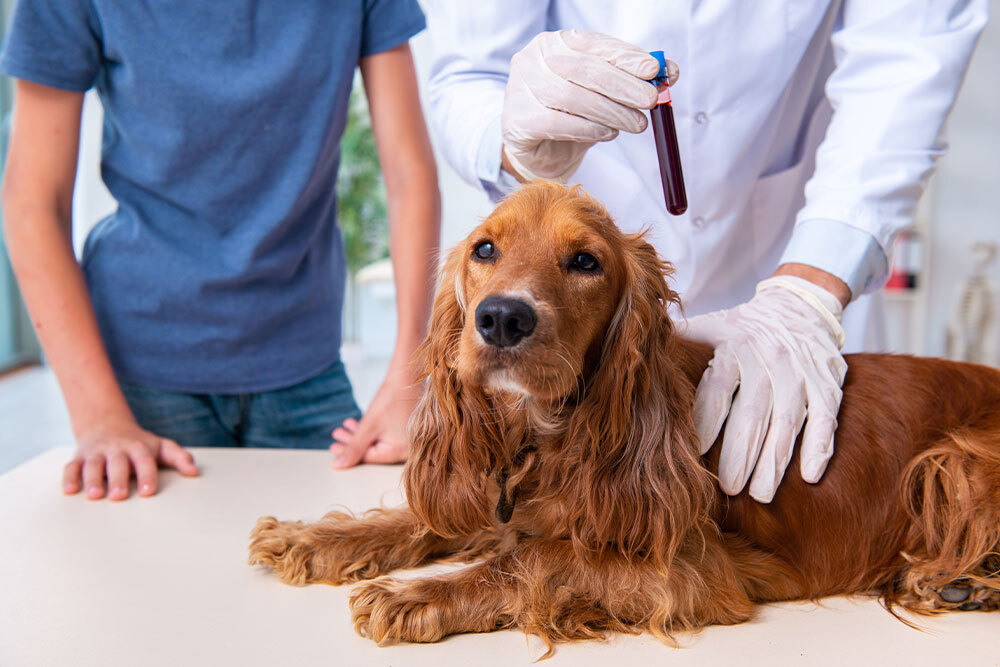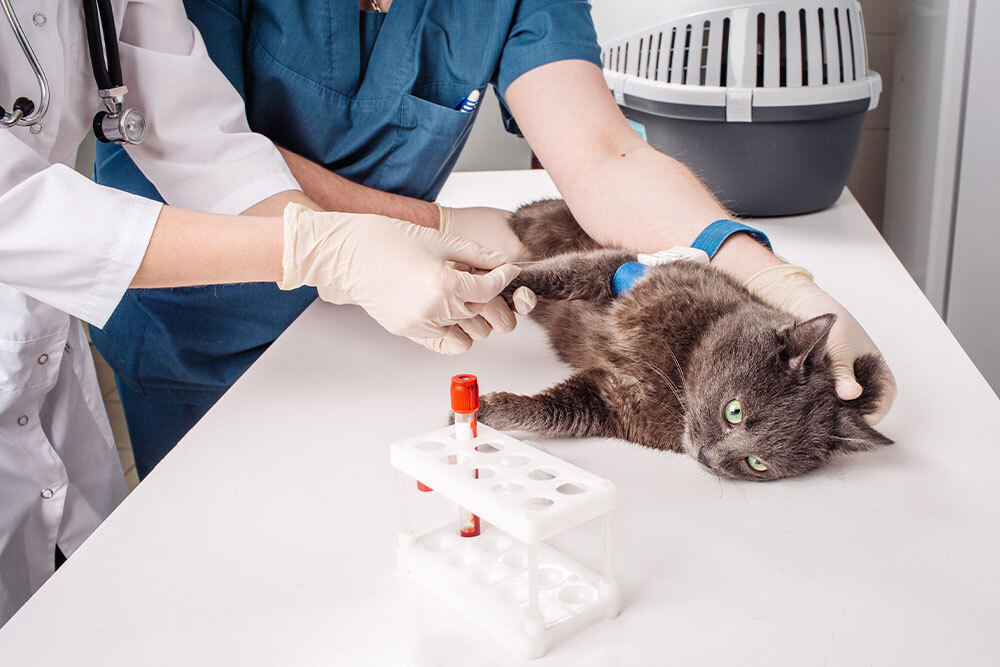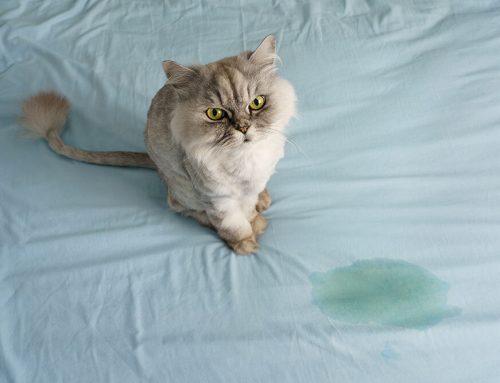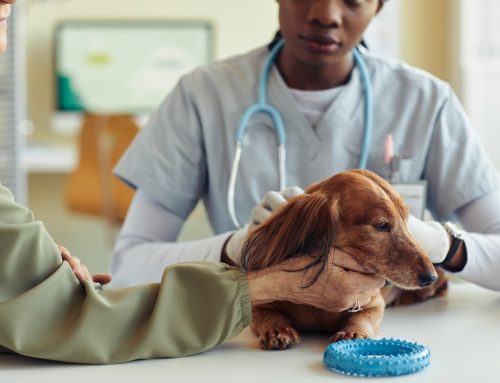We all want our pets to live long, comfortable, and healthy lives. But illness in pets can be hard to spot- especially early on. At Iris Veterinary Care, serving Lewes, Delaware and the surrounding coastline, we use preventive tools like routine bloodwork to catch problems before they become symptoms. These simple tests can reveal hidden conditions, track changes over time, and give you peace of mind.
What Is Routine Bloodwork- and Why Does It Matter?
Even if your pet seems perfectly healthy, bloodwork can uncover subtle signs of disease. Annual testing is one of the most valuable tools we have for identifying risks early, especially in adult and senior pets.
Bloodwork helps screen for everything from anemia and infection to liver disease and diabetes- sometimes months or years before outward symptoms show up.
What’s Included in Annual Bloodwork?
We tailor each panel to your pet’s age, health history, and lifestyle, but most routine bloodwork includes:
- Complete Blood Count (CBC): Evaluates red and white blood cells and platelets. Helps detect infection, anemia, or clotting issues.
- Blood Chemistry Panel: Screens organ function, blood sugar, electrolytes, and more.
- Thyroid Panel: Especially important in older pets to detect hypothyroidism in dogs or hyperthyroidism in cats.
- Urinalysis: Often included to assess kidney health, hydration, or detect signs of diabetes.
Learn more about the different types of veterinary medical tests from the Merck Veterinary Manual.
Why Early Detection Matters
Pets are remarkably good at hiding pain. By the time weight loss, vomiting, or behavioral changes appear, disease is often well underway. Bloodwork gives us the chance to act early- when treatment is often easier and more effective.
Take chronic kidney disease, for example. It’s one of the most common illnesses in aging cats, but signs can be subtle or mistaken for normal aging. Cornell’s overview on feline kidney disease illustrates just how silently this condition can progress.
Similarly, AAHA’s diabetes guide highlights how unnoticed increases in thirst or appetite can be early signs of a serious, lifelong condition.
What Can Bloodwork Reveal?
Your pet’s test results offer a snapshot of their internal health. Here’s what some of those numbers tell us:
| Test Parameter | What It Can Indicate |
| Red Blood Cells | Anemia or dehydration |
| White Blood Cells | Infection, inflammation, or immune disorders |
| Platelets | Clotting problems |
| Kidney Values (BUN, Creatinine) | Kidney function, dehydration |
| Liver Enzymes (ALT, ALP, AST) | Liver health, bile flow issues |
| Glucose | Blood sugar regulation, diabetes screening |
| Thyroid Hormone (T4) | Low in dogs = hypothyroidism High in cats = hyperthyroidism |
Once your results are in, we’ll explain what they mean in the context of your pet’s breed, lifestyle, and history- and work with you to create a plan that makes sense.
Senior Pets Need Closer Monitoring
Older pets experience more subtle shifts in metabolism, organ function, and hormone regulation. That’s why we typically recommend bloodwork every six months for senior pets. These regular checkups help us catch developing issues early and adjust care as needed.
Zoetis Petcare offers a strong summary of how preventive screening protects aging pets and enhances quality of life.
For more signs to watch for as your pet ages, this AAHA guide outlines common senior pet health concerns.
What to Expect During the Process
We keep things calm and simple- especially since many pets don’t love vet visits.
Here’s how it works:
- Physical Exam: First, we examine your pet and discuss any recent changes.
- Blood Draw: Quick and low-stress- usually from the front leg, back leg, or neck.
- Lab Testing: Some samples are run in-house; others go to our trusted reference lab.
- Follow-Up: You’ll get a clear explanation of the results and next steps within 24–48 hours.
We’ll also let you know if your pet should fast beforehand. Some tests- especially for glucose or cholesterol- require it.
What If Results Aren’t Normal?
Abnormal values aren’t always cause for alarm. Sometimes they reflect mild dehydration, age-related change, or stress. Other times, they signal the need for:
- More testing, such as imaging or a urinalysis
- Lifestyle adjustments, like diet or exercise
- Medication, such as thyroid supplements, insulin, or liver support
- Ongoing monitoring to track progression over time
Our goal is always to respond thoughtfully, not overreact- and to make decisions together with you.
How Bloodwork Improves Daily Life
From subtle behavior shifts to long-term management, bloodwork can influence how we care for your pet day-to-day:
- Catching kidney changes early allows us to adjust hydration and food
- Managing diabetes means fewer ER visits and better appetite
- Detecting thyroid issues can improve energy, coat quality, and weight stability
Most importantly, routine screening builds a history we can use to compare over time- helping us spot trends, not just spikes.
Learn why regular vet visits are so important from AAHA.
FAQs About Pet Bloodwork
How often should my pet have bloodwork?
Once a year for healthy adult pets. Every 6 months (or more) for seniors or pets with chronic conditions.
Is bloodwork painful?
No- just a quick needle stick. Most pets tolerate it well with gentle handling.
Can it detect cancer?
Not directly, but it can reveal signs (like low red cells or abnormal proteins) that point us toward further testing.
What if I’m concerned about cost?
We offer transparent pricing and can help prioritize testing based on your pet’s age, risk factors, and budget.
Helping You Stay One Step Ahead
At Iris Veterinary Care, we believe preventive medicine is the best kind of medicine- especially when it happens in a space your pet already trusts. Whether we’re screening for early disease, managing a chronic condition, or simply giving you peace of mind, routine bloodwork is one of the most powerful tools we have. And when it’s done in the comfort of your home, the process is calmer, easier, and more accurate.
If your pet is due for their annual checkup- or if something just feels off- let’s take a closer look, together. We’re here to guide you through it, every step of the way.








Leave A Comment